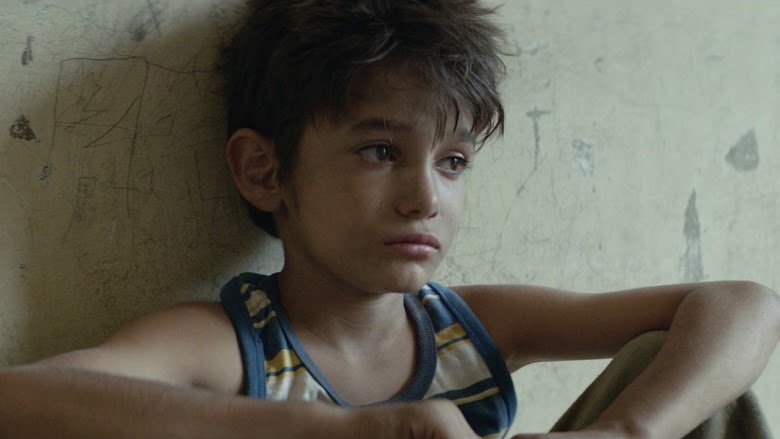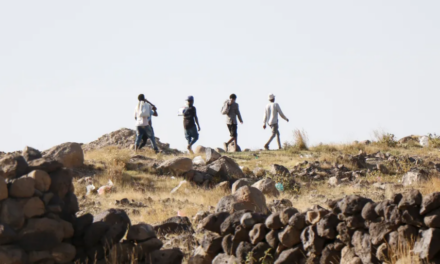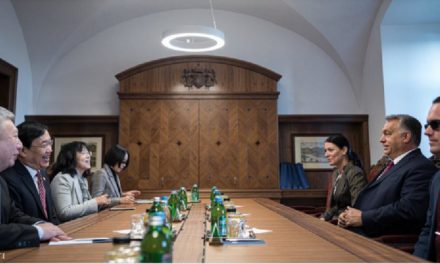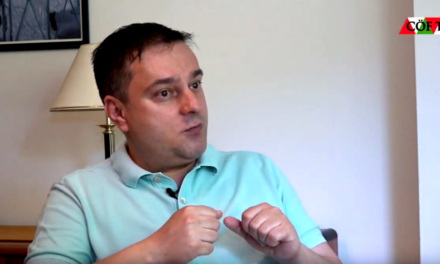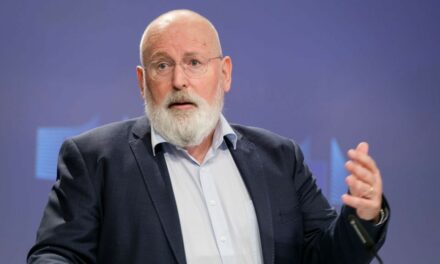As I was driving to Darmstadt recently, the lines of a rather disturbing article about Afghan immigrants came to mind . In the meantime, I looked out of the window and gazed admiringly at the illuminated gardens and the twinkling Advent lanterns in the windows of the houses. And the stars of Bethlehem.
It was beautiful, of course waiting and preparation are always beautiful for me. Then, arriving in Kranichstein, a suburb of Darmstadt, I got stuck in a traffic jam, right near a housing estate that has been home to immigrant and refugee families for years. In the midst of my compulsive staring, I noted that the windows of the high-rise buildings yawned darkly at the street, only two Advent lanterns flickered in the whole house. Is it possible that there really are only so many Christians living here? Then, when I looked at the people crossing the zebra crossing, I got the answer: all the girls and women dressed in chadors crossed the road in front of me, while one of them, a slender, young mother, held her little son's hand with fearful care.
I could go maybe a hundred meters, the line seemed endless, but my thoughts were still on the mother and son I saw on the zebra. And then an image flashed involuntarily, and the film frames began to spin by themselves.
***
Aisha - the mother - opened her eyes. It was seven o'clock in the morning. He reached over to the other side of the bed, where Ahmed was sleeping, but felt only the empty pillow. He suddenly sat up. Ahmed has already left. He didn't say anything, he didn't want to wake her up.
"Oh, how I love Ahmed!" Aisha let out a sigh, then closed her eyes and thought back to the confusion of the previous months, as they left Syria and then ran from border to border. Without his father. Because he, the imam of the small town, was already dead by then. He died during the bombardment of the last months, when the school was also hit.
“How many died,” a sigh broke from Aisha's chest again, “how many innocent children. And so is my father.”
Tears welled up in his eyes, but then he took a deep breath, rubbed his face and sprang out of bed. While she was washing up and combing her hair in the bathroom, she thought about her husband, to whom she had been married for more than ten years. Ahmed was an electrical engineer, he ran a small business at the time. Now he is not at home, he went to school.
"Well, isn't it strange?" - ran through his mind - he goes to school, even though he is already thirty years old.
"I have to learn German well if we want to live here," he used to say, "this is in my interest." It's our interest. And when he talks like that, he always pulls me close and kisses me on the forehead." Aisha pondered this, then let her beautiful thick hair down to the middle of her back. He looked at himself in the mirror.
"You're evolving slowly," he said silently to his reflection, while a pleasant satisfaction ran through him. And really. She didn't look so broken anymore, the black trench under her eyes that Ahmed kisses lovingly every night before they fall into a peaceful sleep. "You'll see everything will be fine!" - he used to encourage them, because now they have no reason to complain. They were lucky. Allah helped them. They got a one-and-a-half-room apartment from the unbelievers, here in Darmstadt. They lived in the bigger room, and ten-year-old Rashid lived in the smaller one. Their little boy.
They didn't have any more children, they didn't want to. The former neighbors and friends, but especially the imam, Aisha's father, kept commenting: "This is not something that pleases Allah, it is not for you to plan a family, it must be left to Allah. The Prophet (blessed be his name!) said that Allah knows exactly how many children He gives to a family." This was repeated all the time and they had to listen. But they whistled at him, they didn't care.
However, Rashid is snoring in the next room. Rashid, who is the only purpose and meaning of his mother's life. "Do you need more joy than this?" Aisha thought and sighed heavily. It won't be long before he goes to school, here in Germany. First.
"How will he like it? He doesn't even understand the language!" Yet Rashid, like his father, spoke several languages. At home, in the family, he used the Kurdish language, at school with the children, Arabic, and in addition to all this, he also learned the Dari language from his grandfather, who was born in Afghanistan. A dialect of Persian. Even though he didn't know English yet, even though Ahmed spoke it fluently... His eyes lit up with pride at this thought. "Ahmed!" She looked in the mirror again and began combing her ebony hair.
"Mom!" - he then heard Rashid's voice from the next room, who had just woken up. Aisha ran into the small room and sat on the edge of the bed where her little son was rubbing his eyes sleepily. He hugged her and started kissing her for a long time.
After breakfast, they dressed nicely. Fortunately, Rashid still had the clothes he had brought from Syria, because of which they did not have to be ashamed of them when they went to the street. Although they received money for clothes, what they brought with them was still more beautiful and they preferred to wear it. "The fashion here... we'd better leave it alone!" Aisha smiled.
She also had one or two nice dresses, but otherwise - almost always - she wore her favorite chador. The light blue one she got from her husband last year, with beautiful embroideries and pearls on the head. How his girlfriend admired him... Aisha's face suddenly became gloomy again... Padida! He is no longer alive either. He died in the bombing, after which they decided to move to Europe. Where, they didn't know. Then they heard from acquaintances that the German chancellor was calling the Syrians. Them. So there were no more questions, "We're going to Germany!" - they said.
In the meantime, she was already hiding in her chador, carefully tucking her hair under her head. He glanced at the tulle once more. He did well because a small strand of hair peeked out from behind his ear. He adjusted it carefully and disappeared under the silk fabric of the light blue chador.
"You belong there," he said jokingly to the lock of hair, "no one but Ahmed needs to see this!" - she took her child by the hand and they went shopping. In the stairwell, they met the girl next door, whose apartment was constantly blaring hip-hop music. He went towards them cheerfully, with brisk steps, and they greeted each other kindly. Then the long red haired girl playfully flicked Rashid's nose as she smiled at them.
In the elevator, Rashid asked the question in a whisper:
"Mom, why doesn't she put her hair under the scarf?" What does Allah say about this?
"Their god is not Allah," Aisha replied, also in a whisper, though no one in the elevator understood their language. In the meantime, they stopped, the red-haired girl got out, walked towards the exit with quick steps, but she still looked back kindly and winked at Rashid. Then they also went out into the street.
Meanwhile, Rashid was still wondering about his mother's answer. What is "their god is not Allah"? Are there more gods? And why does this other god allow this sin? How does a woman wear her hair down? In public, on the street! What kind of god is that?
However, the train of thought was interrupted when Rashid caught sight of the huge Christmas tree set up in the middle of the square as they reached the nearby department store. Aisha was about to go in, but her son's legs seemed to take root; he looked at her with wide eyes, he just looked at the tree, he couldn't even say a word. He had never seen anything like this before. On the branches there are lanterns in a thousand colors, glittering decorations, sometimes silver, sometimes gold, and those boxes wrapped in shiny, red paper... It's a magical sight. Soft, pleasant music was playing from the speaker behind the tree.
"But it's beautiful!" What is this? he asked his mother, and he had already pulled her into the square.
"It's called a Christmas tree," Aisha answered, then told her that the Germans put it up everywhere at this time. And it's called Advent. Then on December 24, they give each other gifts, because that's when their prophet was born. Jesus.
"We also have a prophet," answered Rashid uncertainly, since he had heard the story of Muhammad from his grandfather enough times, "but we don't set up such, such... a Christmas tree ."
"It's not Christmas , but Christmas," corrected his mother, smiling, "and you're right, we don't set up a tree like that for Muhammad (blessed be the name of the prophet!) because our god..."
"Then their god is better," Rashid interrupted gruffly, "because he gives gifts!" And let them put up such a beautiful Christmas tree! he kicked his foot.
"How can you say that, Rashid?" asked his mother in horror, as she put her hand to her mouth in alarm. Well, you should know that our god is the real one! He is Allah, the almighty god.
"And then these here…?" Rashid began again, looking at his mother in confusion, but Aisha quickly cut him off.
"These here are unbelievers," he said quietly, leaning very close to Rashid so that no one else could hear, and added, "but you don't understand that yet."
At this, Rashid suddenly stopped and looked at his mother with wide eyes.
"But the infidels threw the bombs at us!" That's what you told me. And... and that's why grandpa died, and Padida. And Kerim too, my friend!
She started to cry, the tears slowly filled her eyes and then rolled down her face like glass beads. Aisha crouched down, took out her beautifully embroidered handkerchief from the pocket of her chador, and wiped Rashid's jet-black eyes with it. But the child's confusion only increased, and this made Aisha restless as well.
"Infidels are our enemies!" That's what you said! Why did you say that? And why have we come among our enemies? - he asked, then looked uncertainly at the glittering Christmas tree again.
"Because there is peace here." And if there is peace, it is not our enemies. Only when there is a war, then they are.
"And there won't be a war here?" Rashid continued the thought.
- I do not know. But if they do, then they will be our enemies - Aisha said with a sigh, then stood up and adjusted her chador - then they will be our enemies.
"And they're going to bomb again?" Here also? Will they kill us? Rashid asked with a startled look.
At this, Aisha crouched down again and whispered into the ear of her now trembling child:
"No, don't be afraid!" Remember well my son: mom and dad will protect you! We'll protect you. We'll kill them if we have to. But we will protect you, at any cost.
The child looked deeply into his mother's eyes and calmed down. He was no longer afraid. "Mom and Dad will protect me from the infidels and kill them if they have to," he thought, then raised his head proudly, then turned back and glared at the Christmas tree.
"This tree is not so beautiful!" - he said, and then, pulling his mother behind him, they entered a grocery store so that they could shop with the help they received the day before.
***
There are always two sides to a coin. What is success for one is failure for another, what is light for one is shadow for another. A freedom fighter there is a terrorist here, and a loser there can become a winner here. The most important question is what does Europe do with this knowledge?
Dr. Gábor Túri
Germany
Featured image: Kafarnaum / videa.hu

